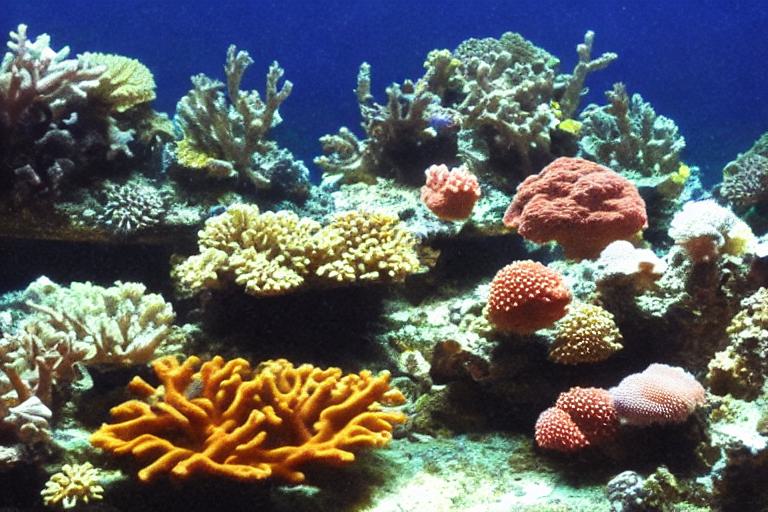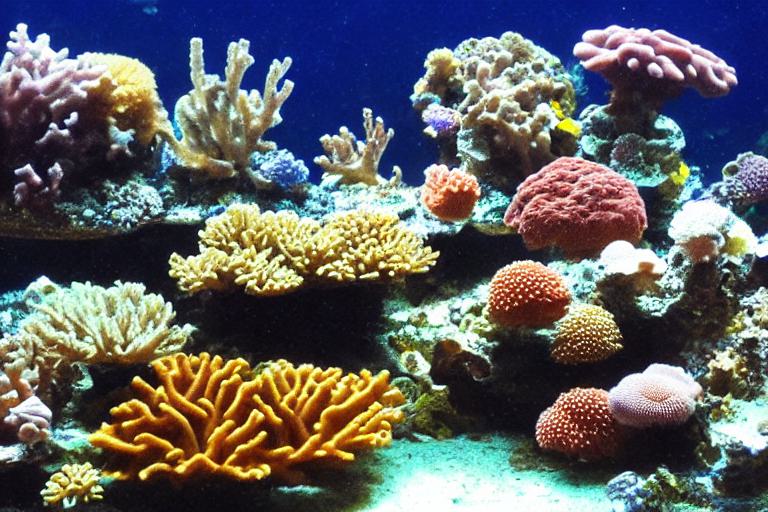Coral reefs are some of the most beautiful and diverse ecosystems on Earth. They are also some of the most threatened. One of the biggest threats to coral reefs is exposure to air. When corals are exposed to air, they can suffer from bleaching and death.
Bleaching occurs when the coral loses its symbiotic algae. The algae provide the coral with food and give it its color. Without the algae, the coral is pale and vulnerable to disease. Death can occur if the coral is exposed to air for too long.
Exposure to air can happen in reef tanks when the water level drops or when waves crash over the reef. It can also happen in nature during storms or when the tide goes out.
There are some things that can be done to prevent exposure to air. In reef tanks, keep the water level stable and make sure there are no waves. In nature, coral reefs can be protected by building breakwaters or by planting mangroves.
Exposure to air is a serious threat to coral reefs. But, with some care and protection, coral reefs can thrive for generations to come.
Difference in Air Exposure Depending on Reef Tank Species
In general, corals can be exposed to air for a short period of time, but it is not recommended to do so on a regular basis. When it comes to reef tank species, there is a big difference in air exposure depending on the type of coral.
Brain coral gets its name from its brain-like appearance, and it is one of the most tolerant coral species when it comes to air exposure. Some corals, such as the brain coral, can tolerate more air exposure than others.
Other coral species, such as the staghorn coral, are much less tolerant of air exposure. In fact, even a short period of time out of the water can be fatal for staghorn coral.
So, when it comes to air exposure, it is important to know which coral species you have in your reef tank. Some corals can tolerate a little air exposure, while others cannot.

Coral Acclimatization Without the Air Exposure Risk
Coral acclimatization without the air exposure risk is a process by which corals are slowly acclimated to changes in their environment without the risk of exposure to air. This process is often used to acclimate corals to new tanks or to new conditions in their natural habitat.
This allows them to adjust to the new conditions without the sudden shock of exposure to air. The process of coral acclimatization without the air exposure risk is slow and gradual. Corals are slowly exposed to new conditions over the course of several weeks or months.
This process is slow and gradual, but it allows corals to adjust to the new conditions without the sudden shock of exposure to air. Coral acclimatization without the air exposure risk is a safe and effective way to acclimate corals to new conditions.
The Possible Effects Of Air On The Rest Of Your Reef Tank
For example, stony corals are much more likely to suffer from bleaching and death if they are exposed to air for extended periods of time. While some corals may be able to withstand exposure to air for a short period of time, others may not be as tolerant. When it comes to the effects of air on the rest of your reef tank, it is important to remember that not all corals are created equal. In addition, the type of coral will also play a role in how it is affected by exposure to air.
Algae can quickly take over a reef tank if it is not kept in check, and this can have a negative impact on the health of your fish and other marine life. For example, if air exposure causes coral bleaching, this can lead to an increase in algae growth. It is also important to remember that air exposure can have a ripple effect on the rest of your reef tank.
It is important to be aware of the risks involved before exposing your corals to air, and to take steps to mitigate any potential problems. Overall, the effects of air on the rest of your reef tank can be both positive and negative.

Frequently Asked Questions
1. What happens if corals are exposed to air?
Corals can survive for short periods of time out of water, but they will eventually die if they are not returned to their natural habitat. When corals are exposed to air, they lose moisture and can become dehydrated. The coral’s tissue can also become damaged from the sun and wind.
2. How long can corals survive out of water?
Corals can survive for a few hours to a few days out of water, depending on the conditions. If the corals are exposed to direct sunlight or wind, they will not last as long as if they are kept in a shady, protected area.
3. What should you do if you find a coral that has been exposed to air?
If you find a coral that has been exposed to air, you should immediately return it to the water. Gently place the coral in the water and make sure that it is completely submerged. If the coral is not moving or appears to be dead, you can try gently moving it around in the water to see if it will revive.
4. Can corals be exposed to air during a reef tank maintenance?
Yes, during reef tank maintenance it is sometimes necessary to expose corals to air. This can be done by gently removing them from the water and placing them in a bucket or container of clean water. Make sure to keep them in a shady area and do not expose them to direct sunlight or wind.
5. What are the risks of exposing corals to air?
The risks of exposing corals to air include dehydration, damage from the sun and wind, and death. It is important to return corals to the water as soon as possible to avoid these risks.
Final thoughts
In conclusion, corals can be exposed to air in reef tanks or in nature. However, it is important to note that they will not survive for long periods of time out of water. If you are considering exposing your corals to air, make sure to do so for only a short period of time and in an area where they will not be exposed to direct sunlight.
